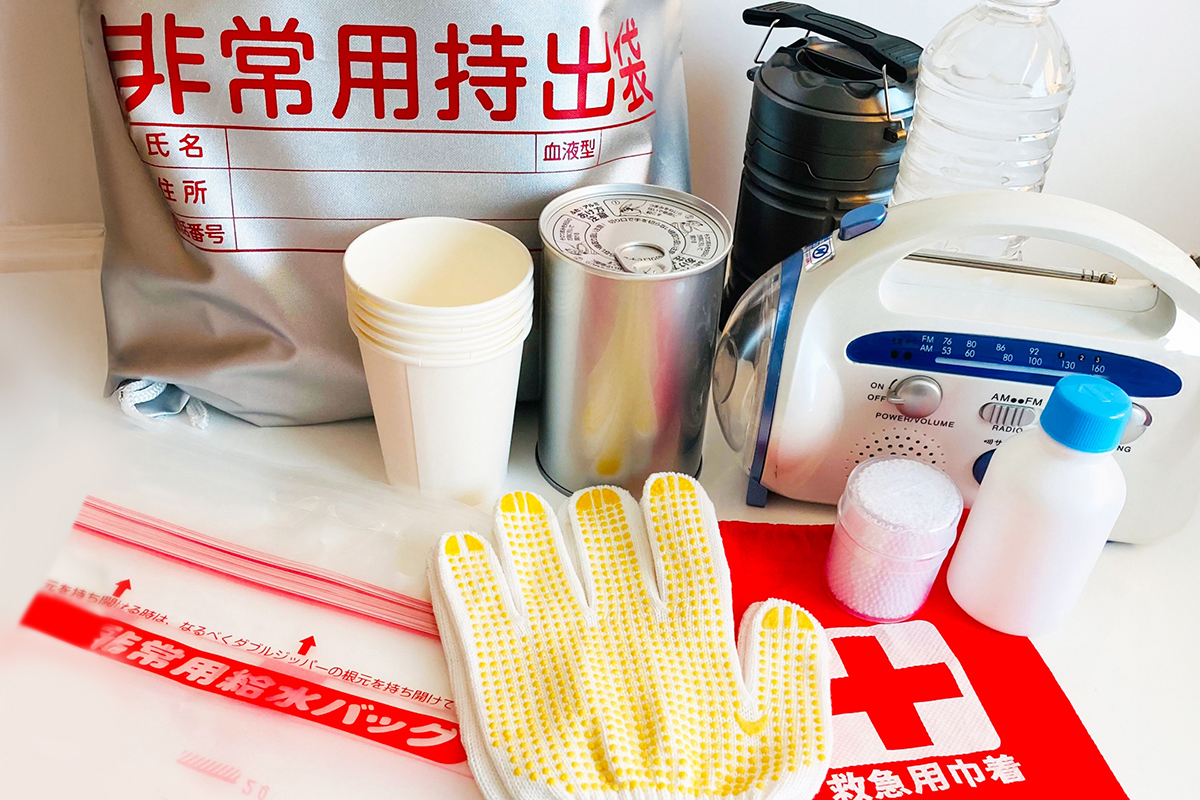How to Prepare Your Emergency Backpack in Japan: A Must-Have Checklist
Japan is one of the most earthquake-prone countries in the world as it sits at the intersection of four tectonic plates. This geological positioning leads to earthquakes, tsunamis and other natural disasters. It’s essential to be prepared for these events.
Having a well-equipped emergency backpack ensures you’re ready to protect yourself and your loved ones during a crisis. This guide will walk you through the must-have items to include in your emergency kit so you can stay safe and informed.
How Do I Choose the Right Emergency Backpack?
Before you start packing, you need to select the right backpack for your emergency kit. The best choice is a sturdy yet lightweight backpack that’s easy to carry without adding unnecessary weight. A design that allows you to keep your hands free is crucial for navigating dangerous situations.
Once you’ve chosen a backpack, store it in an easily accessible location at home. The best place is near the front door or an exit, where you can quickly grab it during a crisis. Preparing the right backpack is the foundation for effective disaster readiness.

What Essential Food and Water Should I Pack?
Your emergency backpack should contain enough food and water to last for at least 72 hours. Pack non-perishable and long-lasting foods such as nuts, biscuits and canned goods. These items provide essential nutrition and are easy to store. You can also include dried ramen noodles as a quick and energy-boosting meal.
Pack enough bottled water for both drinking and basic sanitation. It’s wise to store non-mineralized water since it has a longer shelf life. Also, consider including water purification tablets or a portable filter to make any water source safe to drink. Be aware that after a disaster, there’s often a surge in demand for essentials such as water and toilet paper, so preparing in advance helps you avoid shortages.
What Are the Essential Items for a First Aid Kit?
A well-stocked first aid kit is a must-have for earthquake preparedness. You can buy a pre-assembled kit from most stores, but be sure it contains key items such as adhesive bandages, painkillers and disinfectants. You should also include an aluminum blanket to provide warmth in an emergency.
For a more comprehensive kit, add scissors, medical tape and any personal medications you or your family members need. Having these essentials in a compact bag makes it easy to store and carry. A good first aid kit is vital for addressing minor injuries and providing immediate care, which can make a significant difference in a critical situation.

What Light Source Should I Include?
A reliable light source is crucial for navigating dark or power-outage situations. A flashlight is a must-have item for your emergency backpack. While a standard battery-operated flashlight is fine, consider an LED flashlight for better efficiency and brightness. For added preparedness, invest in a hand-powered flashlight that doesn’t rely on batteries. This ensures you’ll always have light, even if your batteries run out. A dependable light source can be a lifesaver when navigating dark spaces or signaling for help.
What Important Documents and Money Should I Pack?
- Documents: Make photocopies of all essential documents for yourself and your family. In an emergency, these copies can be invaluable if the originals are lost or damaged. Be sure to include copies of resident cards, passports, health insurance cards and a detailed list of emergency contact numbers. Store these in a waterproof folder to protect them.
- Money: Include a stash of cash in both bills and coins. During a disaster, electronic payment systems and ATMs may not work, making cash the most reliable option. Carry enough money to cover essentials such as food, water and transportation. Keeping cash in your backpack ensures you’re prepared even if you forget your wallet in the rush to evacuate.
How Can I Stay Informed During an Emergency?
Staying informed is important, and having multiple sources of information can make a significant difference. A battery-powered pocket radio is a reliable tool for receiving emergency broadcasts when mobile networks are down. The NERV Disaster Prevention App is also highly recommended. It provides real-time updates on earthquakes, tsunamis and other disasters, along with maps and safety instructions in both Japanese and English. You can visit the NERV website for more information.
Frequently Asked Questions (FAQs)
- How often should I check my emergency backpack? It’s recommended to check your emergency backpack at least twice a year. This allows you to replace expired food and water, swap out batteries and ensure all items are in good condition.
- What should I do with my pets during a disaster? If you have pets, prepare a separate emergency kit for them. This should include food, water, a leash, a portable carrier and any necessary medications.
By packing these essential items and staying informed, you can be well-prepared for any emergency in Japan. This proactive approach ensures your safety and provides peace of mind. For more resources on how to stay safe in Japan, check out our other guides.

